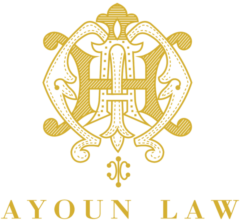Navigate the legal landscape in Ontario! Explore options from legal aid to pro bono services for informed decisions.

Mastering Your Ontario Legal Advisor Decision-Making Journey
Understanding Legal Pros in Ontario
Choosing who to trust with your legal needs in Ontario isn’t as straightforward as picking out a new pair of socks. Different legal experts do different jobs, and knowing the ropes will help you make smart choices about hiring a lawyer, a paralegal, or someone else.
Roles & You Know, Stuff They Do
In Ontario, legal pros come mostly in two flavors: lawyers and paralegals. Here’s the scoop on each:
-
Lawyers: These folks can take you to court, drop some serious legal knowledge, and whip up important paperwork. Lawyers often focus on things like family squabbles, home-buying headaches, and immigration puzzles. They’ve got to clock in some serious study time, earning a Juris Doctor (JD) and acing the bar exam.
-
Paralegals: While they won’t be your courtroom wingman, paralegals do a bang-up job with legal research, typing up docs, and juggling admin stuff. They can step in for smaller legal battles or small claims court face-offs. After snagging a diploma in paralegal studies, the Law Society of Ontario hands them their rulebook.
Knowing who does what can help you figure out whether you need a lawyer, a paralegal, or someone else in your legal corner. Want the skinny on Ontario’s lawyer services? Check out our guide on comparative lawyer services in Ontario.
Rules & Regs That Keep Everyone Honest
In Ontario, legal pros have to play by strict rules to make sure they’re doing right by you and keeping things above board. The Law Society of Ontario watches over both lawyers and paralegals, making sure they’re sticking to the playbook that keeps things fair and square.
Ontario’s rules of the game include:
-
The Regulators’ Code of Practice: This is the big list of dos and don’ts for regulators across Ontario. It’s all about creating a safe and fair playing field in the legal world, with equal treatment for everyone (Ontario.ca).
-
Compliance Teams: These folks make sure everyone’s following the rules by keeping an eye on legal practices and their doings. They’re the reason everything stays legit (Ontario.ca).
Getting clued up on how the system works can help you feel more sure about who to call when you need legal help. If you’re struggling with picking the right legal expert for your needs, mosey on over to our article about deciding on a legal advisor in Ontario.
Comparing Legal Services
When you’re trying to figure out your options for legal help in Ontario, it’s worth knowing the difference between lawyers and paralegals, not to mention the types of specializations and firm sizes that might be just right for you. This part breaks down these choices, so you can decide without the headache.
Lawyer vs Paralegal Options
In Ontario, you’ve got lawyers and paralegals, both solid choices, but they don’t quite do the same things. Here’s the scoop:
| Aspect | Lawyer | Paralegal |
|---|---|---|
| Qualifications | Needs a law degree and must pass the bar exam | Must finish a recognized paralegal course and get licensed |
| Scope of Work | Can represent you in court, offer legal advice, and handle legal docs | Handles specific tasks; can represent in small claims court and some tribunals |
| Areas of Practice | Handles everything from family and criminal law to real estate and immigration | Deals more with stuff like landlord-tenant spats, small claims, and straightforward legal matters |
Figuring out whether to go with a lawyer or a paralegal depends on how knotty your situation is. If it’s about family law or immigration, a lawyer who knows their stuff is typically the way to go. For simpler stuff, a paralegal could work just fine.
Specialization & Firm Differences
Picking a lawyer often means picking a specialty. The size of the firm you go for can also change the game:
- Family Lawyer vs Divorce Lawyer: Both can help with close-to-home issues. But a family lawyer is like a Swiss Army knife, handling everything from custody to adoption. A divorce lawyer? They zoom in on just divorce.
- Real Estate Lawyer vs Notary: Got property biz? Real estate lawyers are your go-to for tricky transactions. Notaries can make documents official, but they don’t dive deep into legal waters.
- Immigration Consultant vs Immigration Lawyer: Immigration lawyers can stand up for you in court, while consultants can guide and do the paperwork, minus the courtroom bravado.
Choosing a big firm or a small one can make a difference. Big firms pack a punch with resources but might feel a bit impersonal. Small firms? They might give you the hug you need, but their toolbox isn’t as packed.
Cost Structures & Legal Process Comparisons
You gotta know what you’re paying for when it comes to legal fees. Here’s the lowdown:
| Pricing Model | Description |
|---|---|
| Hourly Rate | Pay by the hour. Standard for a lot of lawyers. |
| Flat Fee | One set fee for a service (like making a will). |
| Contingency Fee | Lawyer takes a cut of the settlement if you win. Usual in personal injury cases. |
| Legal Aid | Cheaper legal services for those who meet the income guidelines. |
Legal processes have their quirks too. Take litigation vs arbitration in Ontario—different setups, different stroke. Litigation can stretch out longer in court, but arbitration is a quicker, more casual affair. For more on these processes, check out litigation vs arbitration ontario.
With all these roads to pick, take a look at your ontario legal representation options and find your match.




Comments (0)